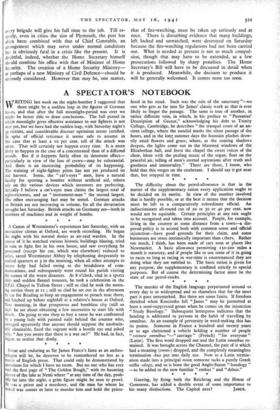Great and enduring as Sir James Fraz2r's fame as an
anthro- pologist will be, he deserves to be remembered no less as a master of English prose. That could only be demonstrated by quotations for which I have no room. But no one who has ever read the first page of "The Golden Bough," with its haunting Picture of the lake at Nemi where "at any time of the day, prob- ably far into the night, a grim figure might be seen to prowl. He was a priest and a murderer, and ttA.: man for whom he looked was sooner or later to murder him and hold the priest- hood in his stead. Such was the rule of the sanctuary "—no one who gets as far into Sir James' classic work as that is ever likely to forget the passage. The same is true of another, in rather different vein, in which, in his preface to " Pausanias' Description of Greece," acknowledging his debt to Trinity College, Cambridge, he describes "the tranquil court of an an- cient college, where the sundial marks the silent passage of the hours, and in the long summer days the fountain plashes drow- sily amid flowers and grass; where, as the coming shadows deepen, the lights come out in the blazened windows of the Elizabethan hall, and from the chapel the sweet voices of the choir, blent with the pealing music of the organ, float on the peaceful air, telling of men's eternal aspirations after truth and goodness and immortality." There are those, I know, who hold that this verges on the exuberant. I should say it got near that, but stopped in time.


























 Previous page
Previous page